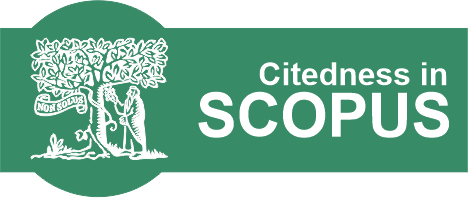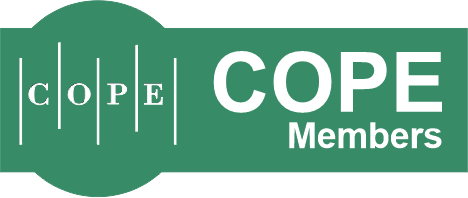A Study on the Influence of Moral Education on Students' Academic Achievements
Keywords:
Education , Moral, Students, Empathy, Discipline, EnvironmentAbstract
The study investigates the influence of moral education on students' academic achievements, focusing on values like responsibility, empathy, and discipline. It uses a literature review method and academic performance analysis. Results show a positive between moral education and improved academic outcomes, with self-discipline and empathy significantly influencing student engagement, behavior, and resilience. Integrating moral education in school curricula enhances academic performance and fosters a supportive learning environment. Recommendations include value-based learning activities, teacher training, and parental involvement
References
Han, H. (2014). Analysing theoretical frameworks of moral education through Lakatos’s philosophy of science. Journal of Moral Education, 43(1), 32?53. doi: 10.1080/03057240.2014.893422
Hildebrand, G. M. (2007). Diversity, values and the science curriculum. In D. Corrigan, J. Dillon & R. Gunstone (Eds.), The re?emergence of valuesin science education (pp.
?60). Rotterdam, The Netherlands: Sense Publishers.
Althof, W., & Berkowitz, M. W. (2006). Moral education and character education: Their relationship and roles in citizenship education. Journal of Moral Education, 35(4), 495?518. doi: 10.1080/03057240601012204
Rao, S. (2016, January 3). Along with math, kids learn about truth & love. Sunday Times of India, p. 4.
Sarangi R (1996). Moral education in schools: Bases and implications. New Delhi: Deep & Deep Publications.
Simona Velea, Speran?a Farca (2013). Teacher's Responsibility in Moral and Affective Education of Children. Procedia: Social and behavioural sciences, 76 (2013), 863-867.
doi:10.1016/j.sbspro.2013.04.221
Thornberg, R (2008). The Lack of professional knowledge in values education. Teaching and Teacher Education, 24 (7), 1791-1798. doi:10.1016/j.tate.2008.04.004
Willemse M, Lunenberg M, Korthagen F (2005). Values in education: a challenge for teacher educators. Teaching and Teacher Education, 21(2), 205-217. doi:10.1016/j.tate.2004.12.009
Dunn, J. (2014). Moral development in early childhood and social interaction in the family. In M. Killen & J. Smetana (Eds.), Handbook of moral development (2nd ed., pp. 135- 161).New York, NY: Taylor & Francis. Erola, J., Jalonen, S., &Lehti, H. (2016). Parental education, class and income over early life course and children's achievement. Research in Social Stratification and Mobility, 44, 33- 43.
Eslava, M., Dea˜no, M., Alfonso, S., Conde, A., &Garc??a-Se˜norán, M. (2016). Family context and preschool learning. Journal of Family Studies, 22(2), 182-201. http://dx.doi.org/10.1080/13229400.2015.1063445
Faize, F. A., &Dahar, M. A. (2011).Effect of mother’s level of education on secondary
Grade Science students in Pakistan. Research Journal of International Studies, 19, 13-
Fan, X., &
Battistich, V., Schaps, E., & Wilson, N. (2004). Effects of an elementary school intervention on students' "connectedness" to school and social adjustment during middle school. Journal of Primary Prevention, 24(3), 243–262.
Benninga, J. S., Berkowitz, M. W., Kuehn, P., & Smith, K. (2006). Character and academics: What good schools do. Phi Delta Kappan, 87(6), 448–452.
Lickona, T. (1996). Eleven principles of effective character education. Journal of Moral Education, 25(1), 93–100.
Tirri, K., & Nokelainen, P. (2011). The role of moral and spiritual intelligence in character education. Journal of Humanistic Psychology, 51(3), 351–377.
Chen, M. (2001). Parental involvement and students' academic achievement: A metaanalysis. Educational psychology review, 13(1), 1-22.
Al-Abrasy, M. A. (1996). Beberapa Pemikiran Pendidikan Islam. Yogyakarta: TTP. Djatmika, R. (1996). Sistem Ethika Islam. Jakarta: Pustaka Panjimas.
Harahap, S. (2000). Pengembangan Nilai-Nilai Budi Pekerti Luhur. LEKTUR, XIII, Maret.
Khairul Amri, M., & Putera, R. (2024). Implikasi Pembelajaran Zakat terhadap Pendidikan Sosial. Journal on Education, 6(2), 13251-13260. https://doi.org/10.31004/joe.v6i2.4568
Najmuddin, H. A., & Aprilianty, L. (2020). the Analysis of Learning Strategies for Character Development of Students During Covid-19 Pandemic. Jurnal Tatsqif, 18(2), 136–150. https://doi.org/10.20414/jtq.v18i2.2834
Piaget, J. (1932). The Moral Judgment of the Child. Routledge & Kegan Paul. Rohidin, R. Z.,
Aulia, R. N., & Fadhil, A. (2015). Model Pembelajaran PAI Berbasis ELearning (Studi Kasus di SMAN 13 Jakarta). Jurnal Studi Al-Qur’an; Membangun Tradisi Berfikir Qur’ani, 11(2), 114–128.
Siti Rukhani. (2021). Peran Guru Dalam Pengelolaan Kelas Untuk Meningkatkan Prestasi Belajar Siswa Kelas Vii. Al-Athfal, Volume 1 N, 8.
Subianto, J. (2013). Peran Keluarga, Sekolah, Dan Masyarakat Dalam Pembentukan Karakter Berkualitas. Edukasia : Jurnal Penelitian Pendidikan
Islam, 8(2), 331–354. https://doi.org/10.21043/edukasia.v8i2.757 Tanfidiyah, N. (2017). Perkambangan Agama dan Moral yang tidak Tercapai pada AUD: Studi Kasus di Kelas A1 TK Masyitoh nDasari Budi Yogyakarta. Nadwa: Jurnal Pendidikan Islam, 11(2), 199–222. https://doi.org/10.21580/nw.2017.11.2.1810
Narvaez, D., & Lapsley, D. K. (2008). Moral education and student achievement: A study of elementary schools. Journal of Educational Psychology, 100(2), 255–270.
Awasthi, D., & Jain, S. (2019). Impact of moral education on student academic performance. International Journal of Educational Research, 95, 13–21.
Berkowitz, M. W., & Bier, M. C. (2004). The role of character education in promoting academic success: A meta-analysis. Journal of Research in Character Education, 2(1), 1
Singh, R., & Sharma, P. (2020). Values education and student achievement: A comparative analysis. Asian Journal of Educational Research, 10(3), 45–60.
Parikh, J. (2021). Moral and ethical education for holistic development and academic achievement. Indian Journal of Educational Development, 39(4), 55–63.
Raj, S., & Kumar, N. (2022). Linking character education with academic performance:
Evidence from schools in India. Journal of Education and Social Policy, 14(2), 78
Downloads
Published
How to Cite
Issue
Section
License
Copyright (c) 2024 Dr.M. Nirmala, Dr.S.H.Sheik Mohamed, Mr.S. Palani, Sam Hermansyah

This work is licensed under a Creative Commons Attribution-ShareAlike 4.0 International License.


































